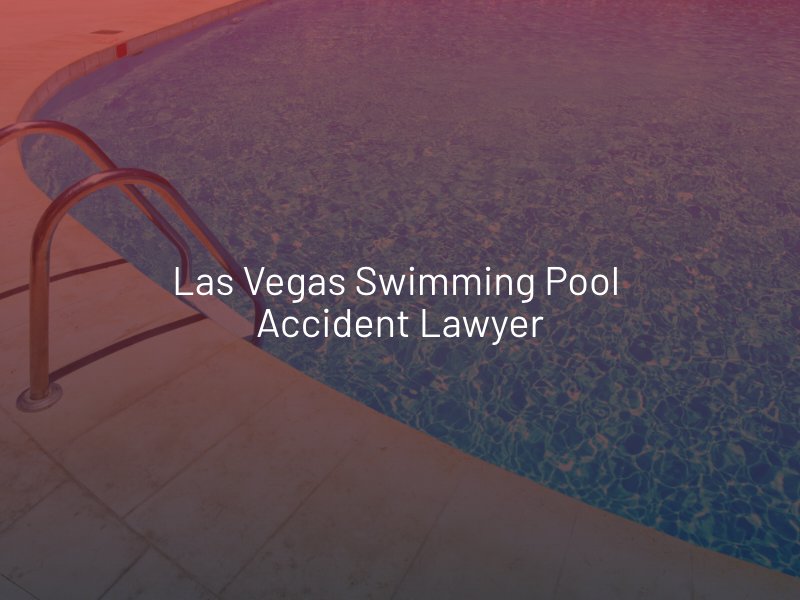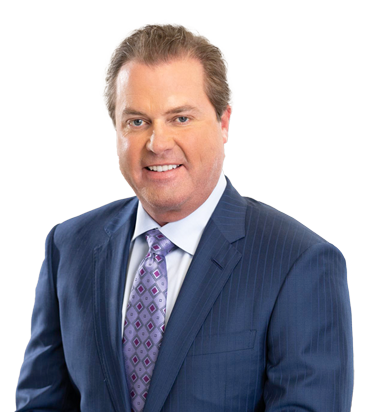Las Vegas Swimming Pool Accident Lawyer
Swimming pool owners — whether public or private — have a responsibility to ensure the safety of their property. If you or a loved one has suffered an injury because of a swimming pool accident, you need an experienced Las Vegas swimming pool accident lawyer to represent you.

Why Choose Us?
At Harris & Harris Injury Lawyers, our Las Vegas premises liability attorneys have an established record of success in recovering compensation for injured people and grieving families. We are prepared to provide powerful representation to those with premises liability claims, including cases involving drownings and near-drownings in swimming pools.
How Much Does a Las Vegas Swimming Pool Accident Charge?
Most swimming pool accident lawyers handle cases on a contingency fee basis rather than charging a hefty hourly rate. This means your Las Vegas swimming pool accident attorney will advance all costs related to pursuing your case, and there are no upfront fees. Whether they get paid is contingent on if you get paid. In other words, if you do not recover compensation, you will not owe any legal fees.
Most Las Vegas firms will deduct between 33 to 40 percent of your recovery, plus court costs. The percentage can vary based on how much work is involved in your case and whether you settle or must go to trial. For example, a Las Vegas personal injury lawyer may require 25% if your case settles, 33.3% (one-third) if they must file a lawsuit, and 40% to represent you at trial. This type of arrangement is beneficial to swimming pool accident victims who can secure skilled legal representation with very little to no out-of-pocket risk.
Compensation For Swimming Pool Accidents
After a swimming pool accident, victims are entitled to recover compensation from the at-fault party. The types of compensation available may include:
Medical Bills & Expenses
Including current and future costs for emergency transportation and care, surgeries, hospitalizations, physical and occupational therapy, prescription medications, medical equipment, in-home care, and any other treatment required.
Lost Income
Both past and future lost wages while recovering and possibly lost earning capacity if there is a difference in income that can be made now compared to before the accident.
Pain and Suffering
Compensation for the physical pain caused by the accident, as well as any emotional distress, such as depression, anxiety, insomnia, PTSD, etc.
Property Damage
Repair or replacement of any property damaged in the accident (e.g., cellphone, swimsuit or clothing, etc.).
Loss of Consortium
If the victim’s spouse or family suffered a loss of love, affection, companionship, comfort, society, etc. due to the injuries, they can recover this type of compensation.
Wrongful Death
When a victim is killed in a swimming pool accident, their surviving loved ones can pursue a wrongful death claim. Potential compensation includes funeral and burial expenses, lost expected income, loss of consortium, any medical bills related to treating the injuries which led to the victim’s death, compensation for the deceased’s pain and suffering, and more.
Punitive Damages
If the at-fault party’s behavior was extremely reckless or intentional, the court may also award punitive damages as a form of punishment for the defendant and to deter others from similar conduct.
How Long Do I Have To File a Swimming Pool Accident Lawsuit in Las Vegas?
Nevada imposes a two-year deadline for victims to file a swimming pool accident lawsuit in Las Vegas, known as the statute of limitations. This window of time typically begins to run on the date the accident occurred or when the injury was discovered or should have reasonably been discovered. When the accident involves a minor child, the statute of limitations is usually “tolled” or delayed until the victim reaches the age of 18.
Once this deadline passes, you can no longer pursue a lawsuit. As a result, it is usually in your best interest to begin the claims process relatively soon after the accident, but that does not mean that you must settle quickly. Instead, a Harris & Harris injury attorney specializing in swimming pool accidents will advise you to wait until you reach “maximum medical improvement” (MMI) and can understand the full extent of your losses.
Swimming Pool Liability in Nevada
Private Swimming Pool Owners
Pools are attractive, both to adults and children. While most adults will not trespass on another’s property to swim in a private pool, children may not have the ability to think through their actions. If they can reach the pool, they will. Homeowners can be held accountable under the “attractive nuisance doctrine.” Secure fencing around a pool is one way homeowners can minimize the tragedy of a child drowning and a premises liability lawsuit.
Swimming pools are not the only attractive nuisances that property owners and managers must consider. For example, an owner can be held accountable for injuries to children from abandoned buildings, from old refrigerators or other property hazards.
Public Swimming Pool Owners and Managers
Public pool operators typically secure the pool in a separate, locked building or with security fencing. They may have lifeguards on duty (or postings that lifeguards are not on duty and parents must supervise their children). They must have safety equipment accessible nearby.
Who Can Be Held Responsible for My Swimming Pool Accident?
Business owners or homeowners with pools on their property owe visitors a duty of care to keep their premises relatively safe. They are not required to warn visitors about obvious hazards, such as the wet ground around the pool. However, injury victims can likely pursue a claim if there is a hidden danger that the pool owner or operator knew of or should have known about and failed to warn of or fix. The same applies if the pool owner or operator fails to adhere to Nevada’s swimming pool safety laws. Examples of potentially liable parties include:
- Homeowner
- Condo or apartment complex owner or manager
- Hotel or resort owner
- Theme park owner
In some cases, a third party may be liable, for example:
- The engineer or landscape architect who designed the pool
- Manufacturer of the pool’s components
- Contractor who installed the pool or a component
- The municipality responsible for maintaining the pool
- The employer of an employee who contributed to or caused another person’s injury or death
In some cases, multiple parties will share liability. To recover compensation for a swimming pool accident, you must be able to establish that the alleged liable party owed you a duty of care, and they breached that duty. This is often done by proving a negligent action or a failure to act resulted in your injuries. However, whether you will be able to demonstrate a breach of duty will depend on the level of care the at-fault party owed you. Trespassers are generally not extended a duty of care as long as the pool is enclosed according to the law.
Nevada Swimming Pool Regulations and Laws
Nevada has swimming pool regulations and laws that pool owners must follow to reduce the risk of injury or death. Those are as follows:
- Perimeter fence that is at least 60 inches high.
- A non-climbable and four-sided barrier at least 48 inches above the finished ground level measured on the side of the barrier that faces away from the pool, with no longer than 4-inch openings so children cannot squeeze through.
- The maximum mesh size for chain link fences is 1-1/4 inch square.
- Access gates must be self-closing and self-latching, with the latching device mounted high enough that it is out of the reach of small children.
- Gates cannot be propped open and, when not in use, must be locked with a combination lock.
- If the wall of a dwelling unit is part of the barrier and includes a door, doggie door, or windows, sensors must be installed that emit a sound when opened or when someone or something goes through. (A small child can climb through a doggie door and drown in an unprotected pool.)
- In Clark County, all pools must have a power-operated pool cover that can hold at least 485 pounds of weight when closed.
- Tables, chairs, and planters must be secured and located away from the pool fence so they cannot be used to climb over the gate.
Common Causes of Swimming Pool Accidents
Some of the most common causes of swimming pool accidents in Las Vegas include:
- Inadequate warning or safety signage.
- Lack of, inadequate, or defective fencing around a swimming pool.
- Lack of or negligent supervision by a lifeguard or adult.
- Poor training of a lifeguard.
- Electrical problems.
- Broken or defective pool components (e.g., diving board or drain).
- Defective pool railings or stairs.
- Lack of a protective cover when the swimming pool is not in use or the use of solar or floating pool covers that do not provide adequate protection.
- Faulty locks or alarms on doors, windows, and other swimming pool entrances.
- Lack of safety equipment, such as life preservers and floatation devices (floaties or life jackets).
- Uneven or cracked surfaces near the pool.
Types of Swimming Pool Accident Injuries
Various types of injuries can occur in or near a swimming pool that range in severity. The most common include:
Drowning
Drowning is a leading cause of unintentional death for young children in Southern Nevada. Drowning victims are often four years old or younger, and these accidents are preventable, typically caused by a brief lack of supervision. A drowning accident may also occur if a victim’s hair, swimsuit, or limbs gets caught in an improperly covered drain.
Brain and Head Injuries
Drowning, diving into a shallow pool, or slip and fall accidents near a pool commonly result in traumatic brain injuries, concussions, skull fractures, or brain bleeds that can have life-changing effects. These injuries also may take time to present symptoms and may not be immediately apparent.
Neck and Back Injuries
A neck or spinal cord injury may occur from a fall or diving into a shallow part of a pool, which can result in limited movement, and possibly numbness or paralysis.
Broken Bones
Severe fractures may require surgery and can take a great deal of time to heal.
Burn Injuries
A jacuzzi that is too hot can result in extremely painful burns that often cause scarring. Chemical burns from too much chlorine in a swimming pool are also common.
Wrongful Death Swimming Pool Cases
No amount of money can repay a family for the loss of a loved one, but a wrongful death lawsuit can bring accountability to negligent property owners. Speak with one of our Las Vegas wrongful death lawyers to explore your legal options after the loss of a loved one.
Speak with an Experienced Swimming Pool Accident Lawyer in Las Vegas
At Harris & Harris Injury Lawyers, we bring a personal touch to our cases that is often unavailable at larger law firms. Because we purposely keep our caseload manageable, we are free to get to know our clients on a personal level, offering them our sincerest condolences and support while pursuing the financial recovery they need.
Contact Harris & Harris Lawyers online or call (702) 384-1414 or toll-free 1 (800) 393-2350. Your consultation is free.


